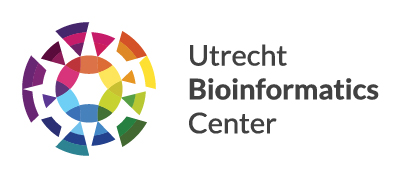Utrecht Bioinformatics Center aims to increase the expertise and interest in the field of bioinformatics in Utrecht. Attracting talent is one way to expand the number of bioinformatic researchers in Life Sciences. Training at all levels is also essential in order to meet the enormous and growing demand for bioinformatics expertise.
Bioinformatics education is one of the three pillars of the UBC, which has multiplied the number of courses offered in our field of expertise. Over the past five years, the number of bioinformatics Master’s courses has risen from three to twelve. In two different Bachelor’s programmes, new hands-on bioinformatics courses enrich the curriculum. In addition, the character of the knowledge in which students in the molecular life sciences are trained has changed.
Higher level
Most of our initial courses used to rely on ‘point and click’ methods in web interfaces to provide researchers with a feeling for what data is out there, and how to query it. Today, most of our education is based on scripting to query and analyse large datasets. These new courses provide a solid basis for the bioinformatics profile, which is offered as a minor in all the Master’s programmes of the Utrecht Graduate School of Life Sciences.
The bioinformatics profile has been offered for three years now, and our introductory Master’s courses are taught twice a year in order to meet the demand.
Upcoming developments
Our current challenge is to provide bioinformatics training for students with different entry levels and different backgrounds. We want to serve the needs of both life scientists with little to no experience with computers, as well as those of hard-core computational biologists. In order to make that possible, we aim to establish a Master’s programme starting in September 2020. We also want to develop more educational concepts for post-graduate training, which will help us connect to post docs, academic staff and the private sector.
Kind regards,
Berend Snel, Patrick Kemmeren & Jeroen de Ridder

